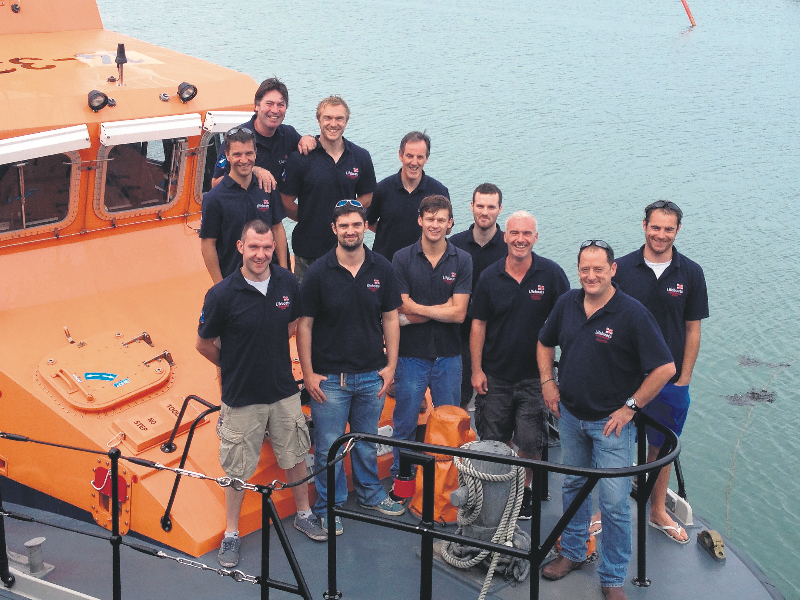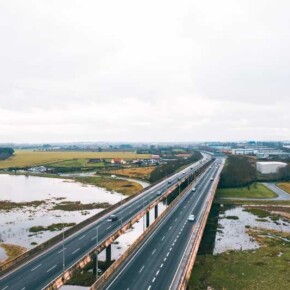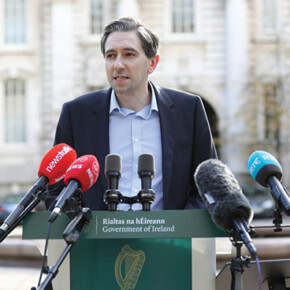Howth’s lifeboat heroes
Dublin People 30 Jan 2016
A NORTHSIDE lifeboat station was the busiest on the coast of Ireland last year.
Howth RNLI, which comprises a team of 28 volunteers, launched 60 times in 2015 and assisted 58 people – a record for the station.
Last week, the RNLI released figures for its 45 lifeboat stations around the coast and on inland waters.
Volunteer lifeboat crew members were kept busy, making a total of 1,098 launches and bringing 1,244 people to safety.
As well as the 28 volunteers for the two Howth lifeboats – an inshore lifeboat and the larger all weather lifeboat – there is also a further eight people on the Management and Operations team and fundraising teams.
All of them are volunteers including Howth RNLI Station Mechanic Ian Sheridan who has witnessed first-hand the look on someone’s face when they have rescued them, or of their loved ones ashore when they return with their son, daughter or family member safe and sound.
“It’s an unbelievable feeling, knowing that we have made a difference and we have brought someone home safe that otherwise without us, the outcome may have been different,” Mr Sheridan said.
Howth RNLI coxswain Fred Connolly said all their lifeboat volunteers are locals who come from all walks of life and give up their time to save lives at sea.
“They respond at a moment’s notice when the pagers go off,” Mr Connolly said.
“Crews are regularly called away from their families, their beds and their work, 24 hours a day, 365 days a year but our training allows us to respond in the most effective way and we all gladly continue the roles we have volunteered for.”
Howth RNLI press officer Noel Davidson said that while the nature of any sea rescue is dangerous its crews are prepared to drop everything and risk their lives at a moment’s notice.
“The RNLI has an intensive training programme to minimise the risk,” said Mr Davidson.
“Our crewmembers are provided with first-class training, equipment, guidance and support and our crews train together every week, at sea and onshore.
“Their weekly exercises focus on teamwork, competence and safe procedures and their training can include anything from boat handling, search and rescue and navigation to radar training, radio communications and casualty care.
“They also practice rescue scenarios involving other emergency services, such as the Irish Coastguard services.”
Mr Davidson believes education is the key to reducing the number of lives lost at sea.
“Howth RNLI has a volunteer education liaison officer who focuses specifically on the next generation of RNLI supporters, presenting at schools and youth groups, igniting young people’s interest in our charity and giving advice on how to stay safe on or near the water,” he said.
“We receive zero State funding and as a charity operating a professional 24-hour search and rescue service, the RNLI must raise all its own funds to keep our lifeboats operating every year.”
Mr Davidson said Howth RNLI couldn’t do the work it does without its community based volunteer fundraisers.
“We are really very lucky in Howth RNLI to have Rose Michael as our head of fundraising,” he added.
“Rose tirelessly organises fundraising events which contributes to Howth RNLI being one of the top fundraising stations in Ireland and the UK.”
Last summer the RNLI launched its national drowning prevention campaign, ‘Respect the Water’, warning people that the coastlines and waters can be dangerously unpredictable.
RNLI Lifesaving Delivery Manager Gareth Morrison said: “This year we will continue to build on that and help inform those who enjoy the water and our beautiful coastline to take care and help reduce drowning.
“Irish volunteer lifeboat crew, our fundraisers and supporters have again worked exceptionally hard serving our local communities.
“We would like to thank all of our volunteers for their hard work and dedication over the last 12 months. Without them our lifesaving service would not exist.”











